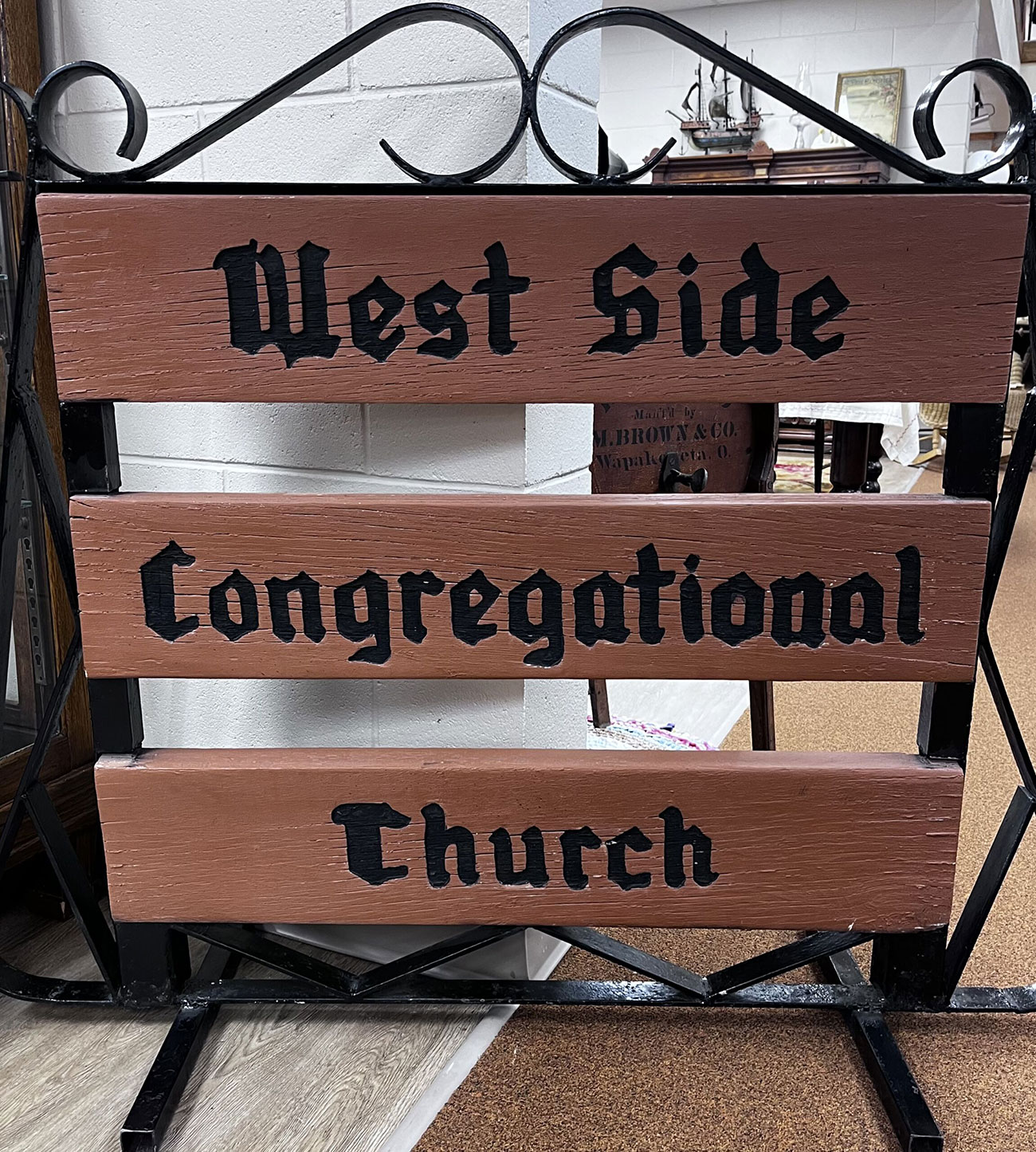On March 6, 1887, Reverand William Suess, in the home of George Weick, called a meeting for the purpose of organizing a German Church. Rev. Suess was acting Chairman. By unanimous vote, the Creed and the Constitution were adopted. The Constitution set forth the overall foundation and regulations of the Congregational church, the same as in the Handbook of Dr. Eversz. The Congregation was organized and named the German Free Evangelical Church of McCook. It commenced with members, all of whom were Germans from Germany.
During the great migration of German-Russians to America, many settling in McCook, the congregation grew rapidly; and by 1900 the membership was comprised mostly of German- Russians.
The first election of officers resulted as follows:
DEACONS: Karl L. Pomrenke, Henry Penner, George P. Weik
SECRETARY: Henry Penner
TREASURER: George P. Weick
Upon decision of the Congregation, Rev. Suess proceeded to incorporate. On July 22, 1887, it was voted to build a church 28’x40’ with 14’ walls at 507 W. 3rd Street. Construction commenced in September, and on December 11, 1887, dedication services were held. The structure was valued at $1,750.00.
Shortly after the organization of the Church, a Sunday School was organized. Church services were held at 10:30 am and Sunday School at 2:30 pm.
The first parsonage was built in 1899 at the cost of $858.00 at 505 W. 3rd Street.
In 1892, the Brotherhood Prayer Meetings were organized by Brethren Conrad Uhrich and Henry Wacker, both of whom moved to Loveland, Colorado.
In 1898, the Layman’s Conference was invited and held for the first time in the McCook Church.
From the 1937 50th Anniversary program:
“Where there is a true Christian Church, there is also prayerful living. And, where a prayerful life and a Godfearing lifestyle exists, there is also inner strength and influence over one’s life.”
In 1902, Rev. Karl Henkelman, founded two Christian Endeavors; one for small children, the other for larger children and young adults.
From the 50th Anniversary program:
“The Christian Endeavor is instrumental in encouraging young people to become members of the Church. Monies raised by the organization are given to the Congregation for Missions and other worthwhile purposes.”
In 1906, the first Mission fest was celebrated, and in 1907, it was voted by the Congregation to make it an annual event.
In 1915, a new parsonage was constructed at a cost of approximately $3,000.
In 1916, with the help of Rev. Sattler, a Ladies Aid was organized. There were 21 members.
From the 50th Anniversary program:
“Christianity has elevated women to their deserving worth. As the Lord Jesus was here on earth, he recognized that women were his staunchest followers. In creating interest for God’s Kingdom, their loving deeds and work in the Church, Women cannot be excelled.”
A new church building was erected in 1920 on the same site as the previous one at an approximate cost of $16,000.
During World War I (the Great War), when the German Language was banned in the United States, then name of the Church was changed to “Westside Congregational Church”.
From the 50th Anniversary program:
“The Church Choirs: One of the most blessed gifts of God is that of singing. To praise God through song is as old as our Religion itself. Nothing is so uplifting in any Church Service or Celebration as the beautiful songs of good choirs.”“Sunday School: Sunday School stresses the worth and necessity for religious guidance of children. Knowledge of the Bible is absolutely necessary for Christian Character building, as in Proverbs of Solomon. He wrote: ‘Train up a child in the way he should go, and even when he is old, he will not depart from it.’ This Sunday School is the oldest department of the Congregation it being organized in the same year of the Church.”
The Church celebrated it’s 50th Anniversary in 1937; it’s 75th Anniversary and Mission Fest in 1962; and its 100th Anniversary in 1887.
In May 1990 the Church held its last service and closed their doors for good. The Parsonage and Church buildings are privately owned residences. Many of the items from the Church, including the Church records were donated to the High Plains Historical Society and are currently on display in the Church exhibit room.
From 1887 to 1990 the following ministers have served the church:
Rev. W. Suess
Rev. H. Buettner
Rev. E. Bettex
Rev. A. Hodel
Rev. W. Vogt
Rev. G. Essig
Rev. G. Henkelman
Rev. Kauerz
Rev. C. Pillash
Rev. E. Wagner
Rev. G. Pauloweit
Rev. F. Sattler
Rev. H.J. Stroh
Rev. J. Weber
Rev. H. Haemmelmann
Rev. E. Gutjahr
Rev. E. Dahmer
Rev. M. Kapeller
Rev. J. Kaale
Rev. R. Heinrich
Rev. Shankwiler
Rev. David Villeiman
Prof. Robert L Pullen
Rev. Ed Eisely
Rev. Dennis Meyers
Rev. Don Dronen
Rev. Thearon Staddon
Rev. Ray L. Roth
Pastor Bruce Merizan

